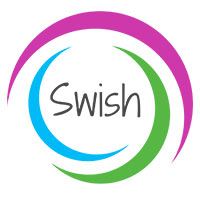
Latest News:
Services for Young People
Confidential information and advice on sexual health
Nearest service to meC-Card Issue Points
Where you can register or collect free condoms, including using our new Click and Collect
Find the nearest to meVaccinations
SWISH offers a number of vaccinations against certain sexually transmitted infections. These vaccinations may be offered to people who are at increased risk of contracting a particular infection. The doctor or nurse is trained to identify if you may need one. SWISH do not offer these vaccinations to all people coming to our clinics.

















